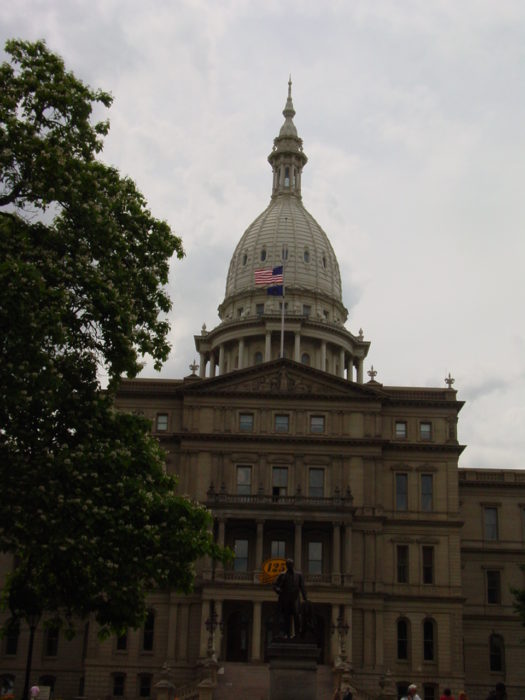
Courtesy of MIRS News Service
A federal court judge Friday afternoon granted local governmental officials’ request for a preliminary injunction on the portion of PA 269 that is known by schools and locals as a “gag order” on communicating local ballot questions.
Judge John Corbett O’MEARA ruled that it’s likely locals would win on their arguments that the former SB 0571 would be ruled unconstitutionally vague when it bans the governmental entities from paying for mailers, media ads or robo calls 60 days before a local ballot question.
O’Meara wrote that the vagueness of the new law could create an “absurd result,” where possibly a local official could be found in violation for merely mentioning a ballot question or trying to explain what a “non-homestead” means.
The “vague” language prohibiting the communications leaves it up to regulators to make an “unrestricted judgment call” and “provides no check against arbitrary and discriminatory enforcement.”
“Public officials deserve clarity on this issue so that they may serve the public in the normal course without fear of arbitrary sanction or prosecution,” he wrote.
The judge also opined that clearing up the matter is best resolved through the legislative process, with due deliberation and debate.
Friday’s decision comes after Thursday’s hearing on the lawsuit brought against the state by local officials, led by Roseville Mayor Robert TAYLOR.
O’Meara’s ruling impacts about 120 school boards and local governmental entities that have money-related questions on the ballot March 8 (See related story).
“Today’s ruling in support of a preliminary injunction is confirmation of what we’ve been saying all along, which is that this law was overreaching and attempted to solve a problem that didn’t exist,” said Dearborn Mayor Jack O’REILLY, president of the Michigan Municipal League board.
The sponsor of the amendment that O’Meara struck down today, Rep. Lisa Posthumus LYONS (R-Alto), said she’s focused on her legislation to clarify the intent of PA 269, which is to prevent taxpayer dollars from being spent on influencing voters on ballot questions.
“The court agrees that clarifying language will further improve the existing law, therefore I urge my legislative colleagues and interested stakeholders to support my bill which protects hardworking taxpayers and clarifies that schools and local governments can disseminate factual information to residents,” she said in a statement.
The former SB 0571 was heavily amended on the last day of session in December to include the so-called “gag order” language, among many other provisions. It received little open debate on either the House or Senate floor before it was passed into law with Republican majority support